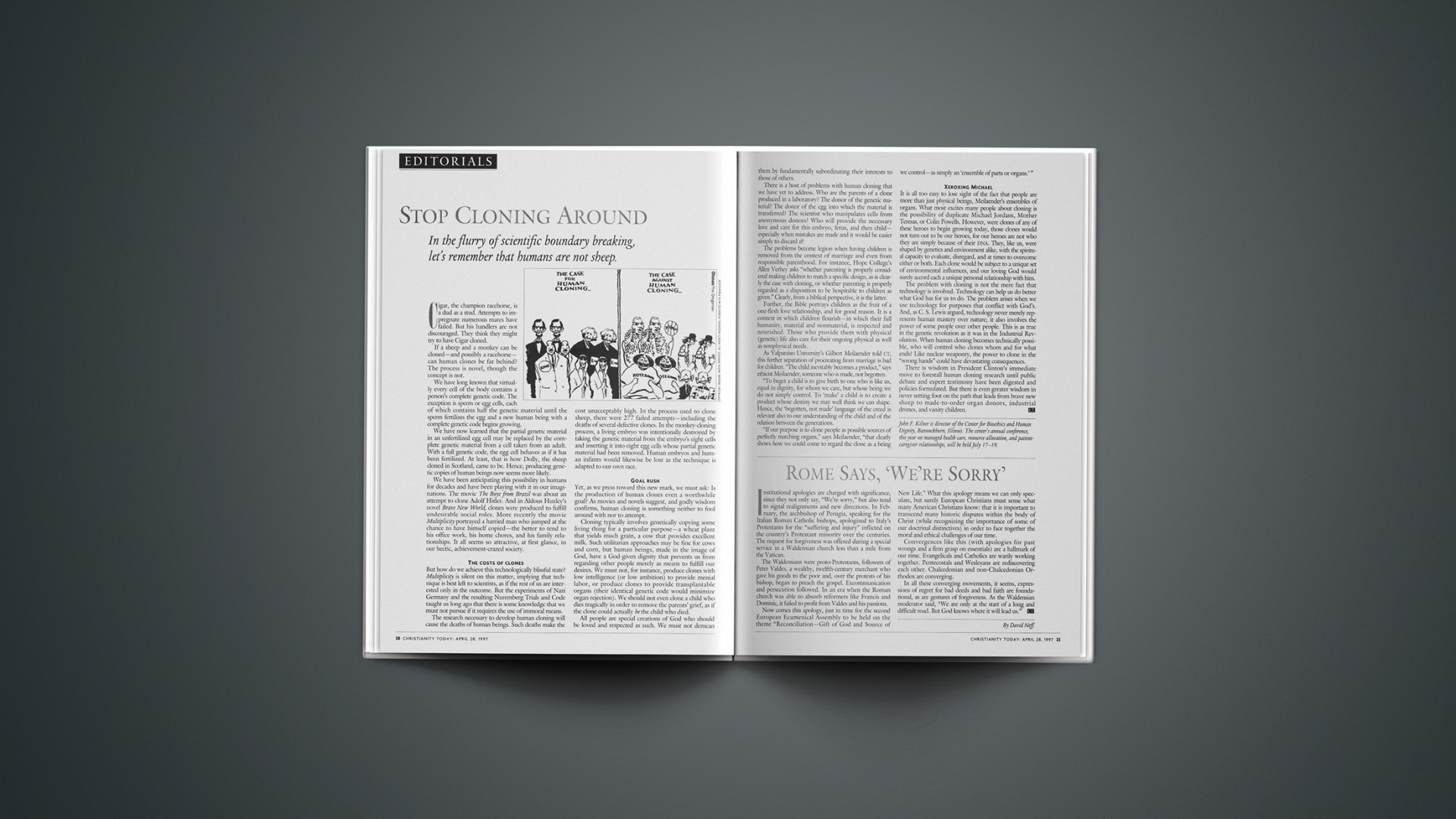Institutional apologies are charged with significance, since they not only say, “We’re sorry,” but also tend to signal realignments and new directions. In February, the archbishop of Perugia, speaking for the Italian Roman Catholic bishops, apologized to Italy’s Protestants for the “suffering and injury” inflicted on the country’s Protestant minority over the centuries. The request for forgiveness was offered during a special service in a Waldensian church less than a mile from the Vatican.
The Waldensians were proto-Protestants, followers of Peter Valdes, a wealthy, twelfth-century merchant who gave his goods to the poor and, over the protests of his bishop, began to preach the gospel. Excommunication and persecution followed. In an era when the Roman church was able to absorb reformers like Francis and Dominic, it failed to profit from Valdes and his passions.
Now comes this apology, just in time for the second European Ecumenical Assembly to be held on the theme “Reconciliation—Gift of God and Source of New Life.” What this apology means we can only speculate, but surely European Christians must sense what many American Christians know: that it is important to transcend many historic disputes within the body of Christ (while recognizing the importance of some of our doctrinal distinctives) in order to face together the moral and ethical challenges of our time.
Convergences like this (with apologies for past wrongs and a firm grasp on essentials) are a hallmark of our time. Evangelicals and Catholics are warily working together. Pentecostals and Wesleyans are rediscovering each other. Chalcedonian and non-Chalcedonian Orthodox are converging.
In all these converging movements, it seems, expressions of regret for bad deeds and bad faith are foundational, as are gestures of forgiveness. As the Waldensian moderator said, “We are only at the start of a long and difficult road. But God knows where it will lead us.”
Copyright © 1997 Christianity Today. Click for reprint information.










